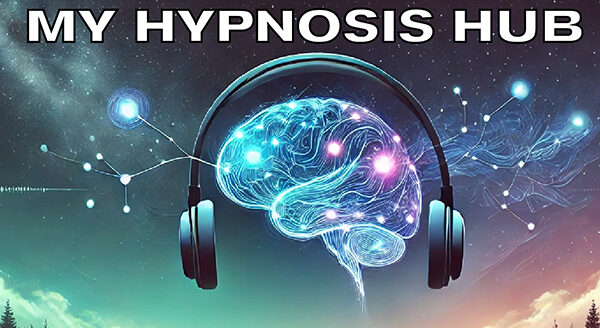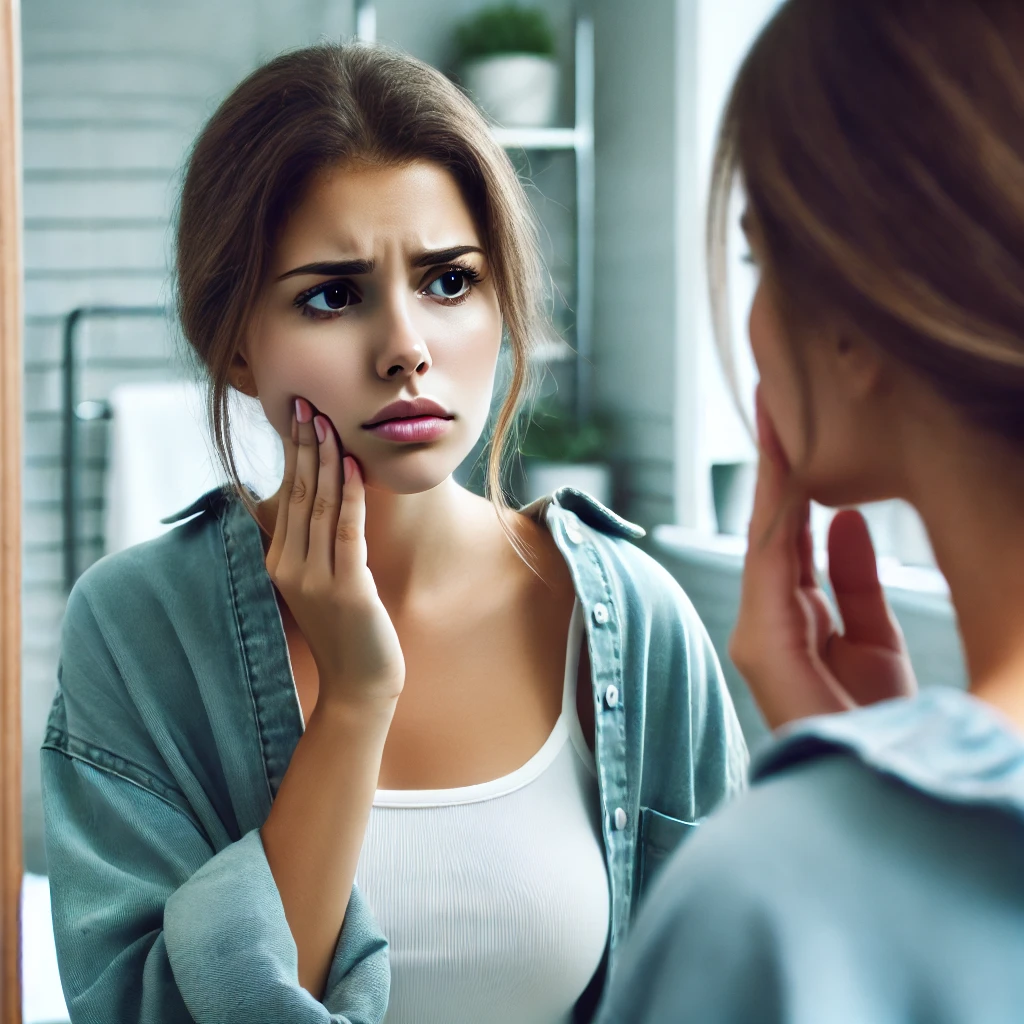Can Hypnosis Stop Teeth Grinding / Bruxism?
Can hypnosis stop teeth grinding / bruxism – A Deeper Look at This Mind-Body Connection and provide relief for those who wake up with sore jaws, headaches, or damaged teeth? Bruxism, the medical term for teeth grinding, affects countless individuals worldwide, often wreaking havoc on oral health and overall well-being. When left unaddressed, this seemingly harmless habit can lead to more serious issues, such as jaw misalignment, cracked teeth, and persistent tension headaches.
In this article, we’ll explore the fascinating possibility that hypnosis can help address the psychological and emotional triggers behind bruxism. We’ll also delve into how the mind-body connection may hold the key to permanent relief. Whether you occasionally grind your teeth or have suffered for years, read on to discover how hypnosis might offer a new avenue for relief—one that targets the root causes rather than just the symptoms.
If you’re ready to explore a specialized program, consider looking into this Teeth Grinding Hypnosis Audio.
Understanding Teeth Grinding / Bruxism
Can Hypnosis Stop Teeth Grinding / Bruxism? Why Do People Grind Their Teeth?
Teeth grinding (bruxism) typically occurs during sleep, though it can also happen while awake. Common triggers include stress, anxiety, misaligned teeth, or even certain prescription medications. For some, teeth grinding is so frequent and forceful that they develop chronic jaw pain, chipped enamel, or an unsettling noise that disrupts partners trying to sleep.
While the physical component—like an improper bite—can play a role, many cases of bruxism are exacerbated or even caused by internal stressors. That’s one reason why a solution that looks beyond dental adjustments, such as hypnosis, might be particularly effective.
The Toll on Your Health
Bruxism isn’t just an inconvenience. Persistent teeth grinding can contribute to:
- Frequent Headaches: The constant pressure on the jaw muscles can radiate into the temples, leading to morning migraines or tension headaches.
- Jaw Disorders: Overworked muscles may cause temporomandibular joint (TMJ) issues, making it painful to eat, speak, or even yawn.
- Sleep Disruptions: Grinding can disturb a restful night, leaving you tired and irritable the next day.
- Damage to Teeth: The friction can wear down tooth surfaces, crack enamel, and loosen fillings.
The Stress Factor: Can Hypnosis Stop Teeth Grinding / Bruxism by Reducing Anxiety?
The Mind-Body Connection
Modern life can be stressful. Work deadlines, personal relationships, and financial worries all contribute to elevated anxiety levels. For some, that stress manifests as teeth grinding, especially at night when your conscious defenses are down. If your mind is racing with worries, that mental tension often shows up in your body, clenching and grinding away at the day’s problems.
Hypnosis addresses this stress by helping you enter a state of deep relaxation. In this calm, receptive state, your subconscious mind becomes more open to suggestions—namely, suggestions aimed at releasing tension and breaking the cycle of bruxism. Hypnotherapy often includes guided imagery and positive affirmations that can instill a sense of calm, making it less likely you’ll grind your teeth out of stress.
Emotional Triggers
Besides stress, emotional triggers like anger, frustration, or sadness can also fuel bruxism. People who have difficulty expressing their emotions healthily may find themselves grinding their teeth as an unconscious physical outlet. Hypnosis sessions frequently involve uncovering these hidden emotional currents, guiding you toward more constructive ways to process and release negative feelings.
Traditional Solutions: Are They Enough?
Mouthguards and Dental Adjustments
Dentists often recommend custom mouthguards to protect teeth from grinding at night. While these can be effective in preventing immediate damage, they don’t always tackle the underlying issues. Mouthguards are essentially a Band-Aid solution; they save your teeth but don’t address the psychological or emotional roots of bruxism.
Medication and Therapy
Some medical professionals might prescribe muscle relaxants or anti-anxiety medication, especially if stress is a clear contributor. These can provide temporary relief, but they might not be a sustainable long-term solution due to side effects or the risk of dependency. Counseling or psychotherapy can be helpful for addressing emotional concerns; however, even those therapies can take time to dig deep into subconscious triggers.
Filling the Gap
This is where the question arises: Can hypnosis stop teeth grinding / bruxism by bridging the gap between physical remedies and emotional healing? Hypnosis offers a mind-focused approach designed to uproot the subtle thought patterns that fuel bruxism. It also fits well alongside other treatments, providing a more holistic pathway to relief.
How Can Hypnosis Stop Teeth Grinding / Bruxism?
Targeting the Subconscious
Hypnosis works by quieting the critical, conscious mind so that positive suggestions can reach your subconscious more easily. Rather than simply telling yourself, “I will not grind my teeth tonight,” hypnosis helps internalize the message at a deeper level. This can reshape your habitual reactions, guiding you away from clenching or grinding when stress or emotions flare.
Stress Management Through Trance
During a hypnotic trance, your body enters a state akin to deep meditation. Your heart rate slows, your breathing becomes more rhythmic, and you experience a profound sense of calm. In this state, you’re more likely to release muscle tension in your jaw and neck, areas often tightened by stress. Over time, repeated hypnosis sessions can train your mind and body to sustain this relaxed awareness, even while you sleep.
Visualizations and Affirmations
Many hypnosis sessions for bruxism incorporate techniques like guided visualization. You might be encouraged to picture your jaw muscles loosening, your teeth resting gently, and your mind drifting into peaceful rest. Affirmations such as “I release tension from my jaw” or “My sleep is calm and relaxed” can replace the unconscious scripts that once triggered clenching.
Can Hypnosis Stop Teeth Grinding / Bruxism: Evidence and Anecdotes
What Research Suggests
While there’s a need for more large-scale studies, existing research and anecdotal reports are promising. Some individuals experience immediate relief, while others notice gradual improvements over several weeks. The consistency of hypnosis sessions—whether with a certified hypnotherapist or a high-quality audio program—plays a critical role in achieving lasting results.
Success Stories
Many people who’ve tried hypnosis say they sleep better, wake up with fewer aches, and feel more mentally balanced. One might argue that these outcomes stem from the power of suggestion. Even if that’s partially true, the end result—a healthier, more comfortable life—is what truly matters.
Steps to Get Started with Hypnosis for Bruxism
Step 1: Choose a Reliable Resource
Begin by selecting a reputable hypnosis program or professional well-versed in addressing bruxism. A tailored approach is often more effective than a generic relaxation script.
If you’re considering a specialized program, you might explore this Teeth Grinding Hypnosis Audio.
Step 2: Create the Right Environment
Find a quiet, comfortable space to practice your hypnosis sessions. Whether you listen in the evening before bed or during a midday break, minimizing distractions can help you sink more deeply into the experience.
Step 3: Practice Consistently
Like any new habit, hypnosis requires regular practice. Try short, daily sessions at first, then adjust frequency based on your progress. Keep track of any changes in your teeth grinding—waking up without jaw pain or noticing fewer episodes of nighttime clenching are good signs you’re on the right track.
Step 4: Pair with Other Coping Strategies
Combine hypnosis with stress-relief methods such as yoga, mindful breathing, or journaling. If you’re in therapy or wearing a mouthguard, integrate these solutions rather than viewing them as competitive options. The synergy can accelerate results.
Potential Roadblocks: Overcoming Common Myths
“Hypnosis Is Mind Control”
Contrary to Hollywood portrayals, hypnosis isn’t about surrendering your will. You remain aware and can snap out of a trance anytime. The process is more about learning to focus your mind in a way that encourages positive change.
“It Won’t Work If I’m Skeptical”
A healthy dose of skepticism is natural, but try to remain open-minded. While unwavering belief can enhance results, even cautious participants have reported positive outcomes. Focus on consistent practice rather than trying to force yourself into any particular mindset.
“It’s a Quick Fix”
Some experience rapid improvement; others find it takes weeks or even months to notice a difference. Your dedication to regular sessions and willingness to explore emotional underpinnings both influence how quickly you see results.
Long-Term Outcomes: Beyond the Bruxism
Enhanced Overall Well-Being
If you’ve asked, “Can hypnosis stop teeth grinding / bruxism and improve my life?” the answer often extends beyond just the jaws. Reduced stress and improved sleep quality can impact your mood, relationships, and even productivity at work.
Building Stress Resilience
Once you learn to use hypnosis to release tension in your jaw, you might also find it valuable for other stress-related issues. Whether it’s headaches, anxiety, or even that nagging sense of overwhelm, the relaxation techniques gained from hypnosis can become a lifelong resource.
Continuing the Journey
Even if your bruxism symptoms fade, you may choose to keep practicing hypnosis to maintain your newfound sense of calm. From boosting self-confidence to curbing other habits, the subconscious mind remains a powerful ally in personal development.
Embrace a Tension-Free Future
So, can hypnosis stop teeth grinding / bruxism once and for all? While every individual’s journey varies, countless people have discovered lasting relief through consistent hypnosis practice. By addressing the stress and emotional triggers that feed into bruxism, hypnosis offers a holistic approach that complements traditional dental solutions.
It’s not about dismissing the role of mouthguards or ignoring possible physiological factors. Rather, the real magic happens when you merge mind-focused tools with expert dental advice, creating an integrated plan that tackles the problem from multiple angles. Hypnosis adds an essential dimension to your strategy—one that targets the subconscious routines that keep your jaw clenched and your nights restless.
If you’re ready to explore this possibility, consider the Teeth Grinding Hypnosis Audio as a starting point.
Above all, remember that lasting change often requires patience, practice, and a willingness to look beyond surface solutions. With hypnosis, you’re not just trying to “fix” bruxism; you’re enhancing your mental well-being, finding healthier stress outlets, and discovering a more peaceful way to live and sleep.
For more ways to harness the power of your mind, you might also enjoy our post on Stop Negative Thoughts Hypnosis. It could provide another valuable tool in your journey toward a calmer, happier you.


